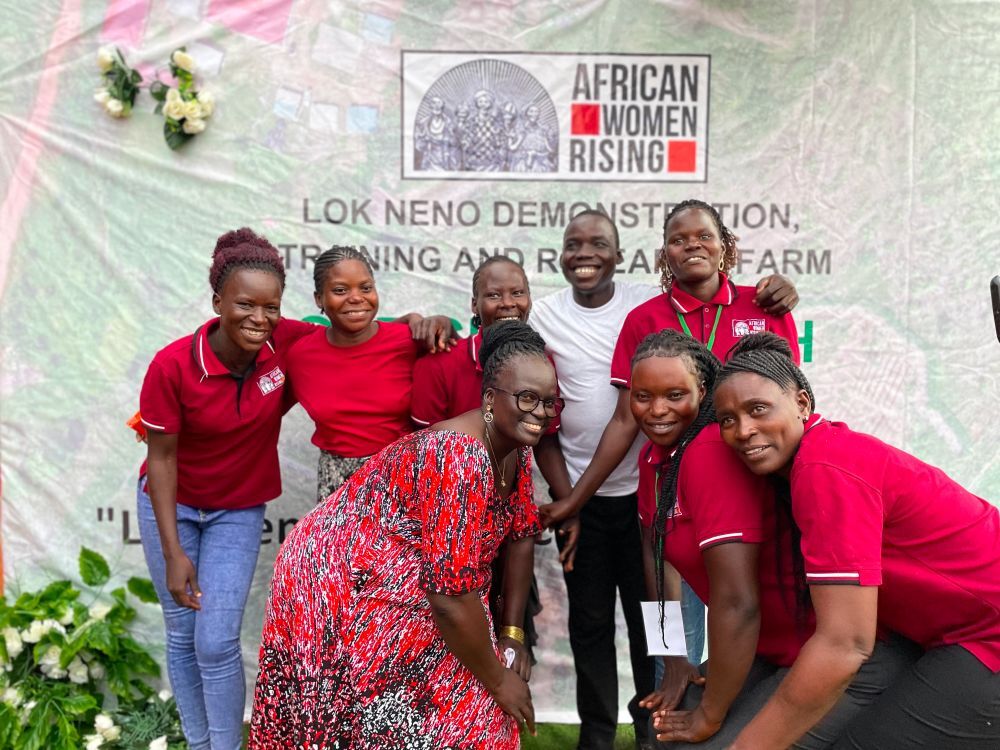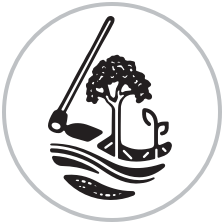Resilience Design Training Program
Are you interested in digging deeper into the Resilience Design Approach? Join the movement by attending a two-week, field-based Resilience Design training at Lok Neno, a training site in Palabek Refugee Settlement in Northern Uganda.
Who is the training for?
Who is the training for?
The practical Training-of-Trainers certification program is designed for humanitarian practitioners who will train other trainers in their programs and/or directly implement RD in community settings.
The target audience is program managers, technical staff, monitoring and evaluation staff, and/or proposal writers working at the nexus of humanitarian, development, and peace (HDP) programming. It is designed for programs working across Agriculture, Nutrition, Food Security, Disaster Risk Reduction (DRR), Natural Resource Management (NRM), Water, Sanitation and Hygiene (WASH), and/or Market System Development (MSD). This can include local, regional and global program staff with technical expertise in agriculture and/or local and regional government extension agents.
What will the training cover?
What will the training cover?
Participants learn the theory and practice of Resilience Design, covering how to integrate the RD toolkit into humanitarian programming. As a demonstration-based training, participants build demonstration gardens with both refugee and host community populations. Participants experience a mix of classroom learning, peer-to-peer sharing, curriculum-reinforcing activities, design exercises, field practicum, community facilitation, and reflection. This is a very hands-on, practical, and active field-based training!
Where will the training take place?
Where will the training take place?
At Lok Neno, the demonstration, training, and research site in the Palabek Refugee Settlement in Northern Uganda.
Who facilitates the training?
Who facilitates the training?
The facilitation team consists of Warren Brush and Thomas Cole, two of the developers of the Resilience Design Approach, and Evelyn Lalwedo and Patrick Olanya, two of the lead trainers from African Women Rising (AWR).
Meet the Resilience Design Team
Other facilitators include staff from AWR who are from the communities in which the training will take place.

When are the trainings?
When are the trainings?
The two-week training program takes place every March and October, around the onset of the rainy seasons.
How do I apply?
How do I apply?
Testimonials
Testimonials
"This course is a valuable investment in both your personal and professional growth, especially if you're working in resource development or community-focused projects. It provides practical tools and strategies for developing sustainable, community-driven initiatives, which are essential for anyone aiming to make a lasting impact. The training balances theory with actionable insights, and the emphasis on strategic planning and community engagement will empower you to approach your projects with confidence. One of the highlights is how the course fosters innovative thinking, helping you see challenges in a new light while offering real-world solutions you can immediately apply to your work. The peer learning aspect also offers a great opportunity to network and exchange ideas with professionals from diverse fields. If you are passionate about creating meaningful change and building resilient programs, this course will equip you with the knowledge and skills to achieve that. It's a chance to deepen your understanding of sustainable development and refine your approach to tackling complex challenges."
.....
"This is the best course you will ever take, it will challenge you in every way, help you think outside of the box and be open to new ideas and also making a difference in the community."
.....
"The course is a must have."


